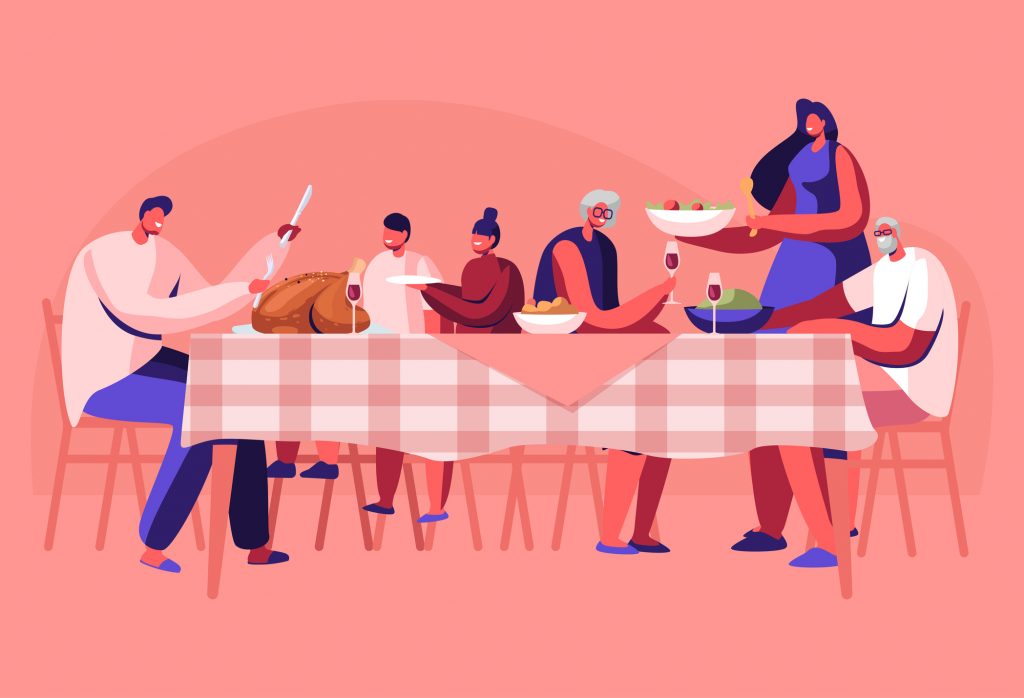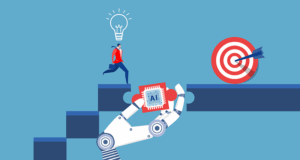It’s that time of year again when many families begin to reunite. You might see your kin’s version of Martha Stewart, “The Perfectionist” who’s going to scrutinize your cookware and place settings. Or maybe you have an “Instigator” who’s going to poke the bear about current events, or a “Know-it-All” who will ask all the questions about your new job so that they can school you on what you do. And don’t forget the enviro-conscious “Foodie” who’s going to interrogate you about the turkey raised on genetically-modified grain.
Last time you saw them, they got to you. But this time you’ve done your homework. You’re armed and ready for the arguments. Here’s how to make these holiday get-togethers more manageable.
The brain likes shortcuts.
For the same reasons we create acronyms to create shared language or attainable goals, sticky bits of information we can remember leads to action. Think about how cognitively exhausting it would be if the “Know-It-All” label, for example, looked more like: “The relative that intentionally makes me feel bad about myself due to their efforts to elevate their own status and power over me.” The brain can only hold about four things in working memory, so shortening things is good for ease of use and managing our cognitive capacity.
When new information forms a neural network, that mental map gets stored as a schema. The brain resorts to schemas to process our surroundings more efficiently, and they are retrieved quickly when a shortcut is required. That efficiency can lead us to expect things to be a certain way, like expecting a fight with relatives, and prime us to help make those expectations a reality.
Sticky memes “prime” the brain.
When we label an expectation with a sticky meme, it can activate unconscious priming. This is a condition where a memory, or an association with the meme, is activated which causes aspects of our environment to be brought into light—sort of like when you say you want to have a baby and then you start noticing people with strollers everywhere. Or you decide you want to buy a house, and suddenly half the properties on your regular commute have “for sale” signs. Chances are, those things were always there, but the appearance of the meme triggered the brain to illuminate them under a cognitive spotlight.
The brain wants to course-correct.
When we create these easily-recalled brain tags, it can help nudge our behavior through a form of self-calibration. This calibration occurs when our brains can actively recall a frame of reference from our long-term memory and combine it with what’s happening in real time. We’ve done research on this, and it applies to everything from learning new habits to spurring innovation. When a sticky meme is brought to the front of mind, it creates a continuous reminder for the brain to stay on task. This is highly efficient for behavior change; if you want to establish a new habit to drink more water, for example, you might place a note that says “hydrate” at the top of your computer.
Now that you understand your family’s sticky memes, what should you do with them?
Much of the success of The Secret, a 2006 book that had Oprah fans projecting their desires into action, is owed to the brain hack that combines the power of unconscious priming with positive reappraisal—a heavily-researched cognitive tool with a multitude of benefits.
To help prime this holiday season for positive returns, try reframing your expectations towards gratitude. If you catch yourself recalling a sticky negative, reframe it with a positive spin. For example, instead of anticipating “Mother Teresa” to make you feel bad for the abundance on your plate, look forward to the opportunity to ask this family member more about the volunteer work they’ve been doing in their community. Instead of anticipating all the questions from the family member who likes to share their wealth of knowledge, look forward to morsels that may be useful in other areas of your life.
Sticky expectations are a powerful force. And like Yoda might tell a Jedi, use the force for good.






